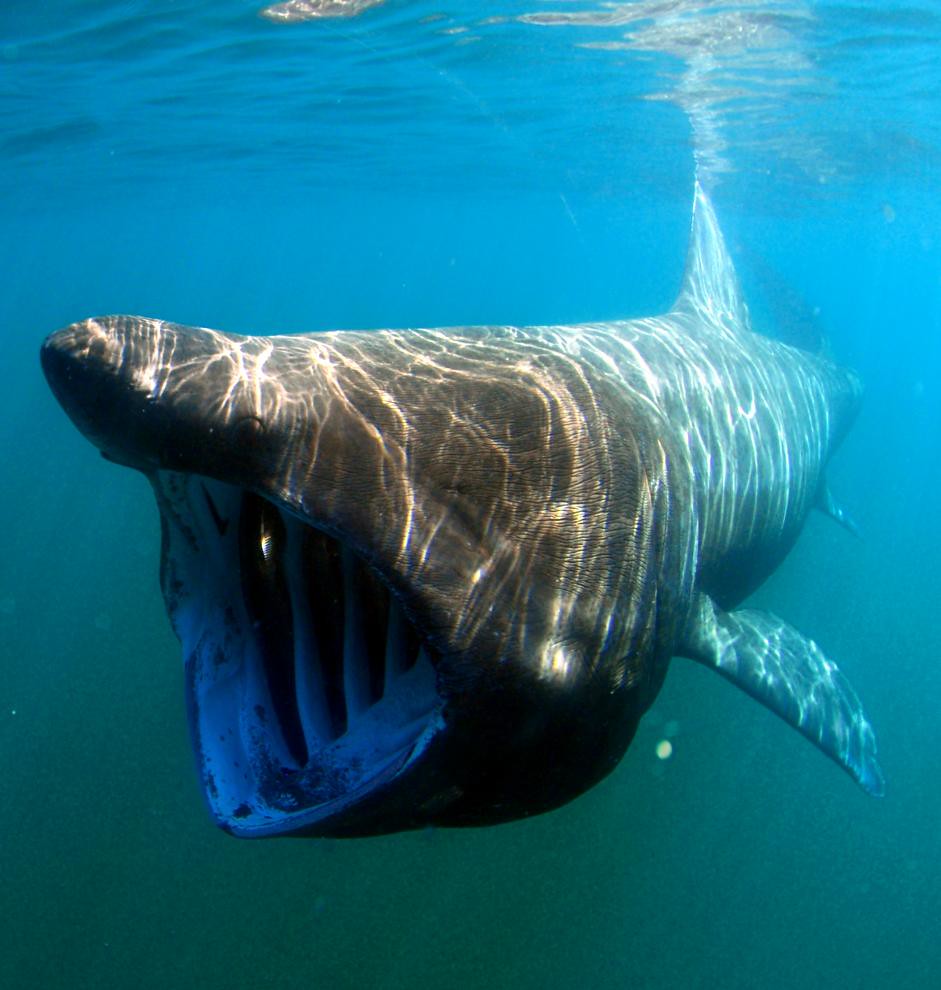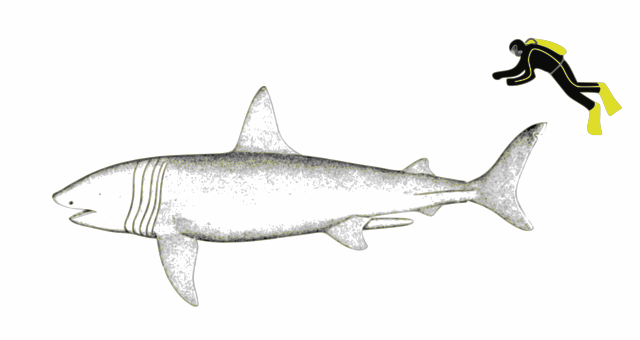Jul-2020
Basking Shark Beached at Primrose Valley
Just after 6pm last night the Filey inshore lifeboat was launched following reports of a large basking shark becoming stranded in shallow waters near Primrose Valley.
The lifeboat crew joined personnel from the Coastguard, British Divers Marine Life Rescue, RSPCA and Scarborough Sea Life Centre in an effort to get the fourteen and a half foot basking shark back into deeper water. Despite rescue efforts the shark had to be put to sleep by a vet after it continued to head back to the beach where it got stranded.
A post on the British Divers Marine Life Rescue website said that they: “Managed to guide the 4.4-metre long creature back into the water as the tide came in. Unfortunately, the shark appeared to be struggling as it was listing consistently over to its right-hand side and circling in the shallows, sometimes needing support from the rescuers. Potentially this could indicate it was weak, unwell or may even suffered some brain damage during the process of live stranding. As they are fish, sharks obtain oxygen through the water passing over their gills, so while it was live stranded the oxygen supply would have been much reduced and may potentially explain this behaviour.
“Despite attempts to move it into deeper water the shark continued to head back to the beach where it restranded and later in the evening was put to sleep by a vet due to the poor prognosis. It is thought to be a male and would’ve been around the size and age where it would have been maturing into an adult.
“Basking sharks are generally a seasonal visitor to the UK, mostly being seen from Spring until Autumn, however there have been occasional sightings in Winter too. Satellite tagging studies in the UK show that they can move across the Atlantic to places as far afield as North America and North West Africa. They are most often encountered along the west coast of the UK, with sightings in the North Sea and eastern English Channel being somewhat rare.

Basking sharks feed on plankton and use their huge mouths to filter water
“They are the second largest fish in the ocean after the whale shark and can reach lengths of over 10m. They feed only on plankton by filter feeding – swimming along with their huge mouth open and using specialised ‘rakers’ in the gills to extract their food as it passes through them. They do have teeth, but as they have evolved to no longer need them they have virtually disappeared and measure only a few millimetres long. They are thought to live for over 50 years.
“Basking sharks are listed as endangered by the International Union for the Conservation of Nature (IUCN) Red List and are protected from killing, harm and disturbance in the UK. They are very vulnerable to disturbance from water users and people are advised to keep their distance (100m), to not approach, follow or touch them and to avoid groups. If the shark decides to come closer to you then allow it to interact on its terms and leave again.”

Comparison of a fully grown basking shark to a human. c.The Nature Box

comment this post